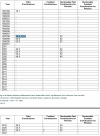Hi
When looking at my other half's social insurance record there are 16 class "J" credits back in 1987/88 and then nothing till 1997 where there are "38 A, 52 S" credits.
I can tell that Class J aren't reckonable for pension but are they for entry into employment for yearly average? He has no idea what they actually were. There's also a mix of A and S credits so it's really hard to get a sense of whether he'll be eligible for any contributory pension at all (he has some years between 88 and 97 of unemployment. And then a decade or so abroad.

Any advice would be much appreciated. I did ring Welfare, but ended up more confused.
Thanks
When looking at my other half's social insurance record there are 16 class "J" credits back in 1987/88 and then nothing till 1997 where there are "38 A, 52 S" credits.
I can tell that Class J aren't reckonable for pension but are they for entry into employment for yearly average? He has no idea what they actually were. There's also a mix of A and S credits so it's really hard to get a sense of whether he'll be eligible for any contributory pension at all (he has some years between 88 and 97 of unemployment. And then a decade or so abroad.

Any advice would be much appreciated. I did ring Welfare, but ended up more confused.
Thanks
